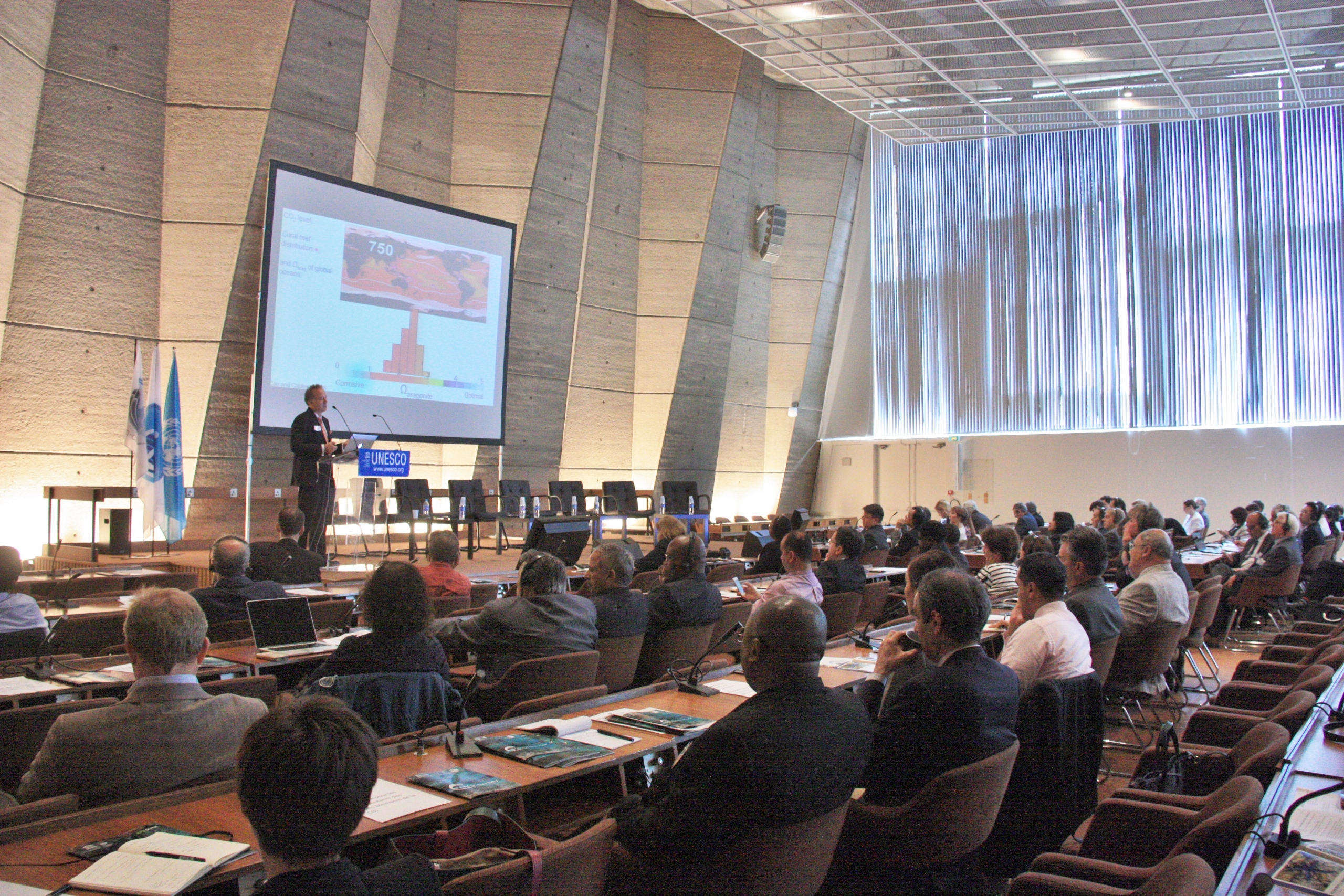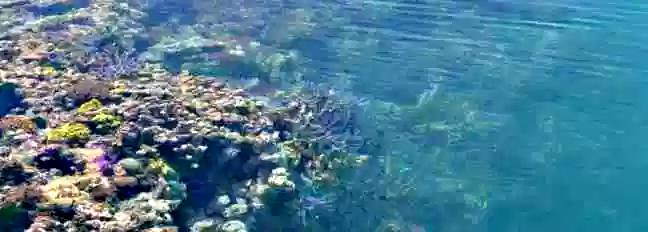The Intergovernmental Oceanographic Commission, a branch of UNESCO, graciously awarded me their Roger Revelle Medal on World Oceans Day, Wednesday, 8 June 2016, and asked me to present the Roger Revelle Memorial lecture at the UNESCO facilities in Paris to the delegations from participating governments. A lightly edited form of the abstract I sent them follows.
Ocean acidification and other stressors on marine systems: How can we help the oceans help us?
Ken Caldeira, Carnegie Institution for Science, Stanford CA 94305 USA, [email protected]
For all of human history, life in the oceans has greatly helped humans. Marine life not only provides humans with food, but also can build structures such as coral reefs that help protect coastlines. Living things in the ocean also play central roles in the global carbon cycle.
Life in the oceans is confronted with a wide array of direct human challenges: overfishing, farm runoff, coastal development, industrial pollution, and so on. In addition to these challenges, climate change is warming and further stratifying the upper ocean, reducing nutrient supply to the well-lit near-surface ocean. Further, when the ocean absorbs carbon dioxide from the atmosphere, the ocean becomes more acidic, and this increased acidity makes it more difficult for many marine organisms to build their shells or skeletons.
For most of human history, humanity has been a relatively small force on the planet. What we did didn’t matter very much for most natural systems. But since the industrial revolution, humanity has become a geologic force, affecting our planet with an intensity and scale that will be clearly visible to geologists in the distant future.
If we want to keep taking from the ocean, we will have to give something back. If the ocean is going to continue helping us, we will need to help the oceans.
After a brief survey of new challenges faced by the oceans, this talk will take a somewhat autobiographical walk through developing an understanding of ocean acidification. The story begins with a discussion of the extinction of the dinosaurs and what it tells us about the sensitivity of our coastal systems to changes in ocean chemistry. It then moves on to discuss how projected future changes in ocean chemistry compare with those of the ancient past – and the conclusion is that the changes we are inducing now are large even by geologic standards. I will close with a description of some field work we have been doing, studying coral growth in the Great Barrier Reef.
The central thing that we need to do to protect the ocean from ocean acidification and climate change is to convert our energy system into one that does not use the sea and sky as repository for our waste carbon dioxide – an energy system that does not depend on smokestacks or tailpipes.
But there is much we can do to help ocean ecosystems become more resilient to the changes that will occur. There are other things we can do to help the oceans help us.
We can get better at managing fishing, including establishing no-fish zones. We can work with farmers to control run-off, work with industry to identify and eliminate dangerous pollutants from the production system. We can develop our coasts sensibly, and recognize the value of building a sustainable relationship with the wild and untamed.
